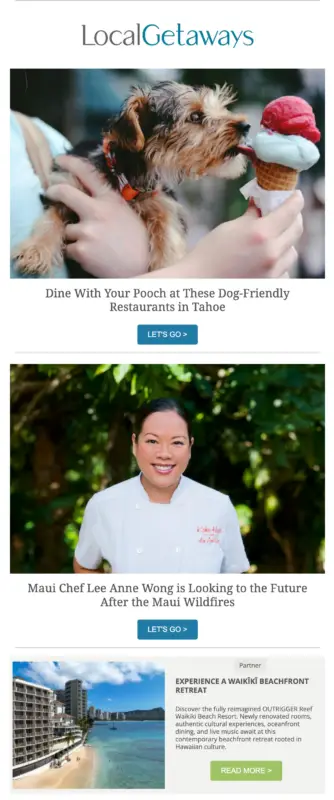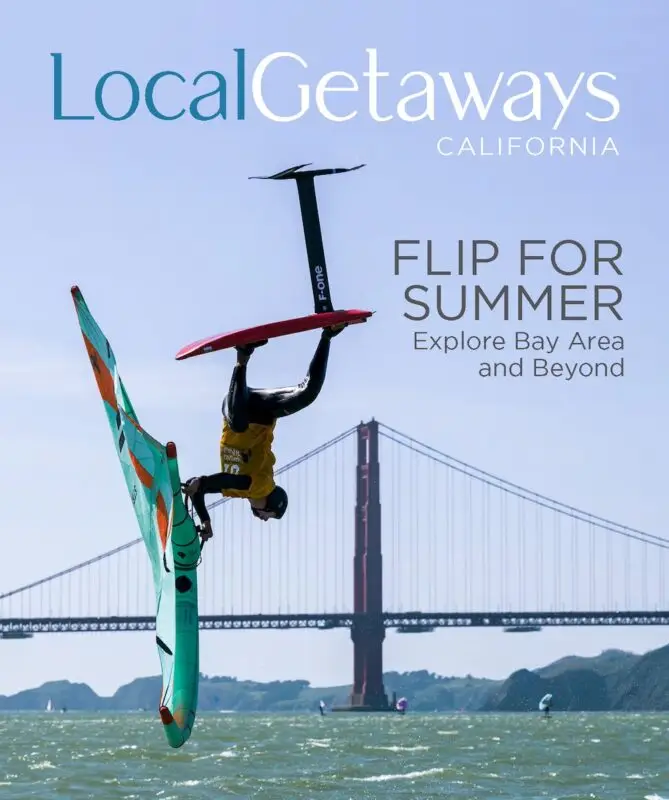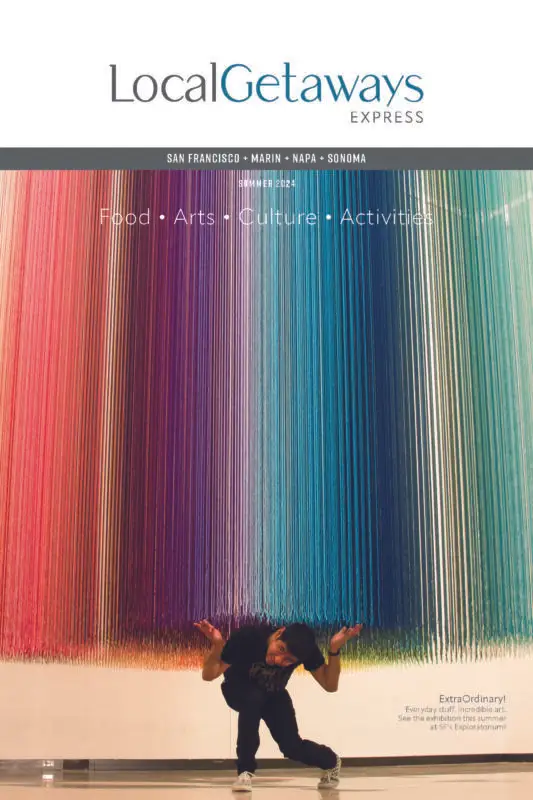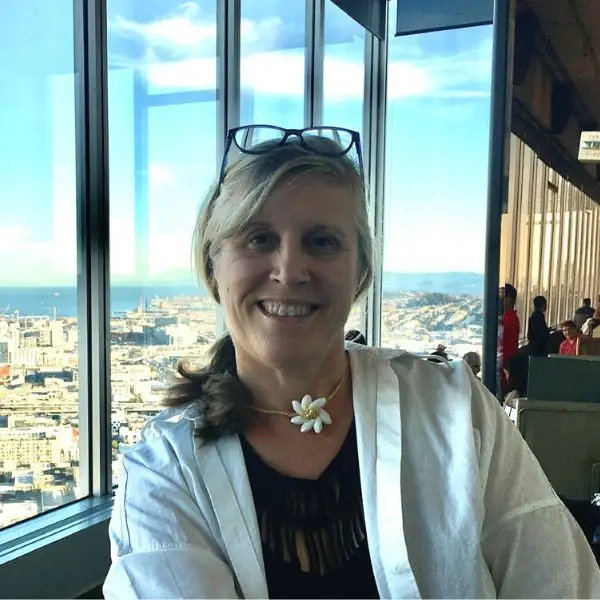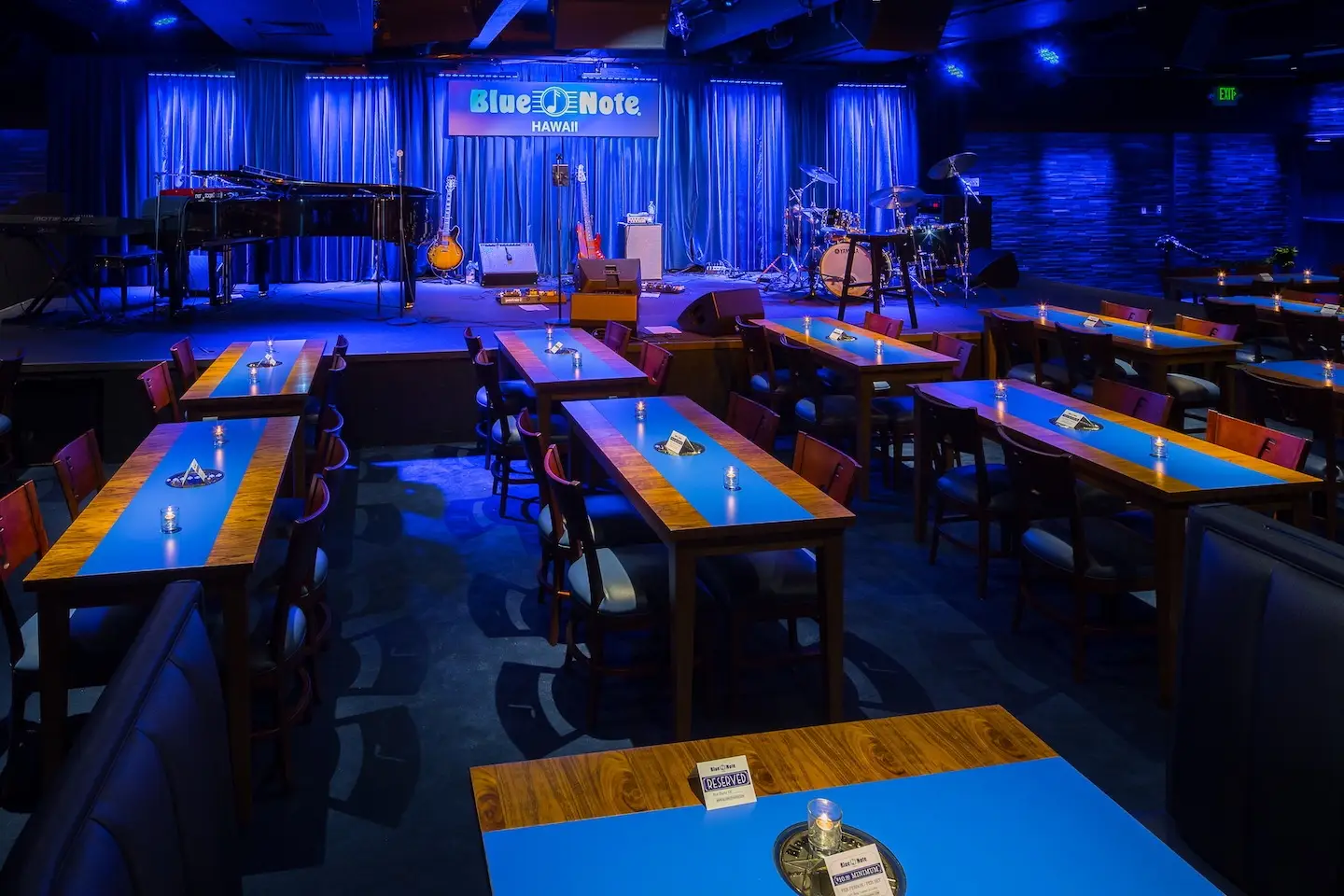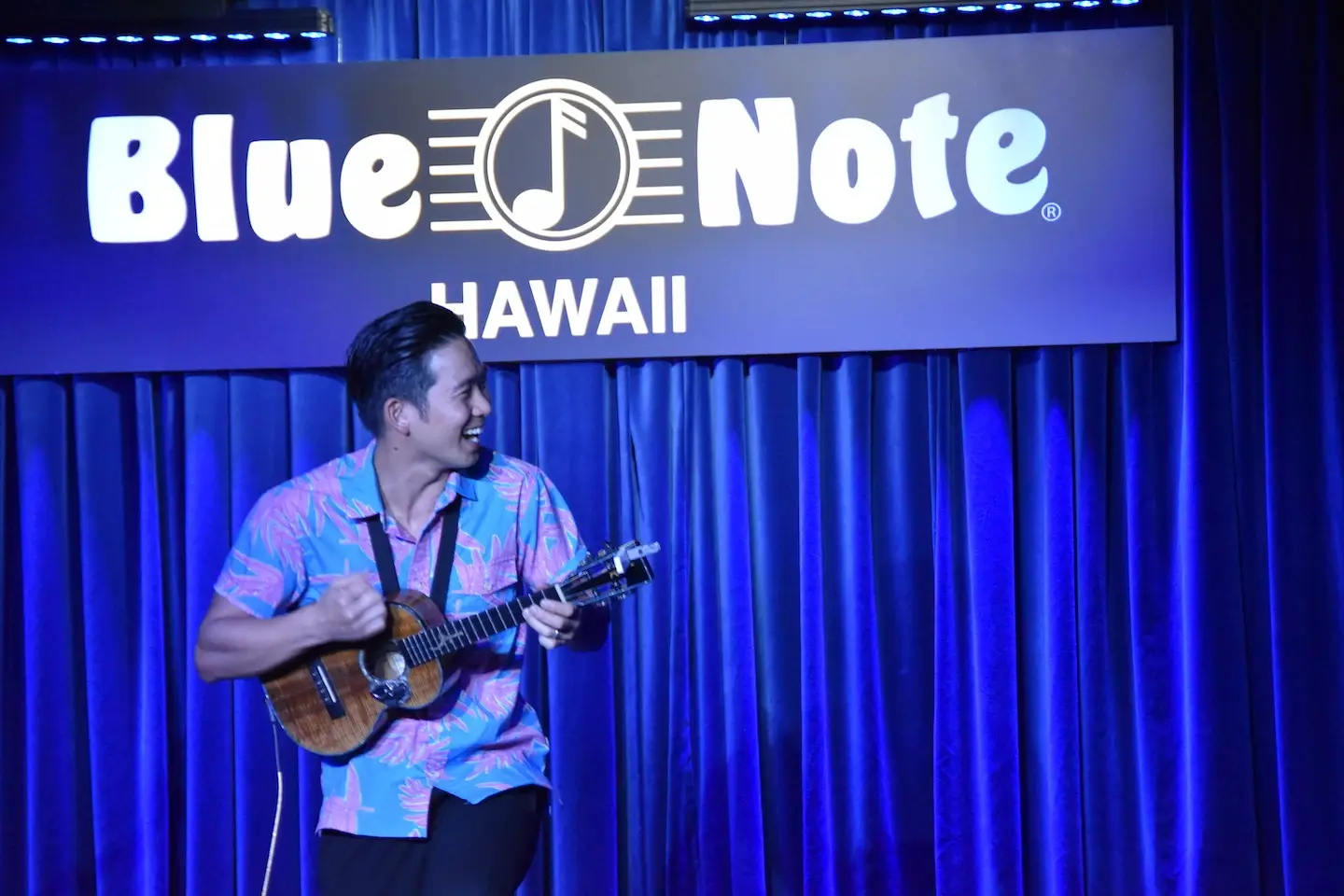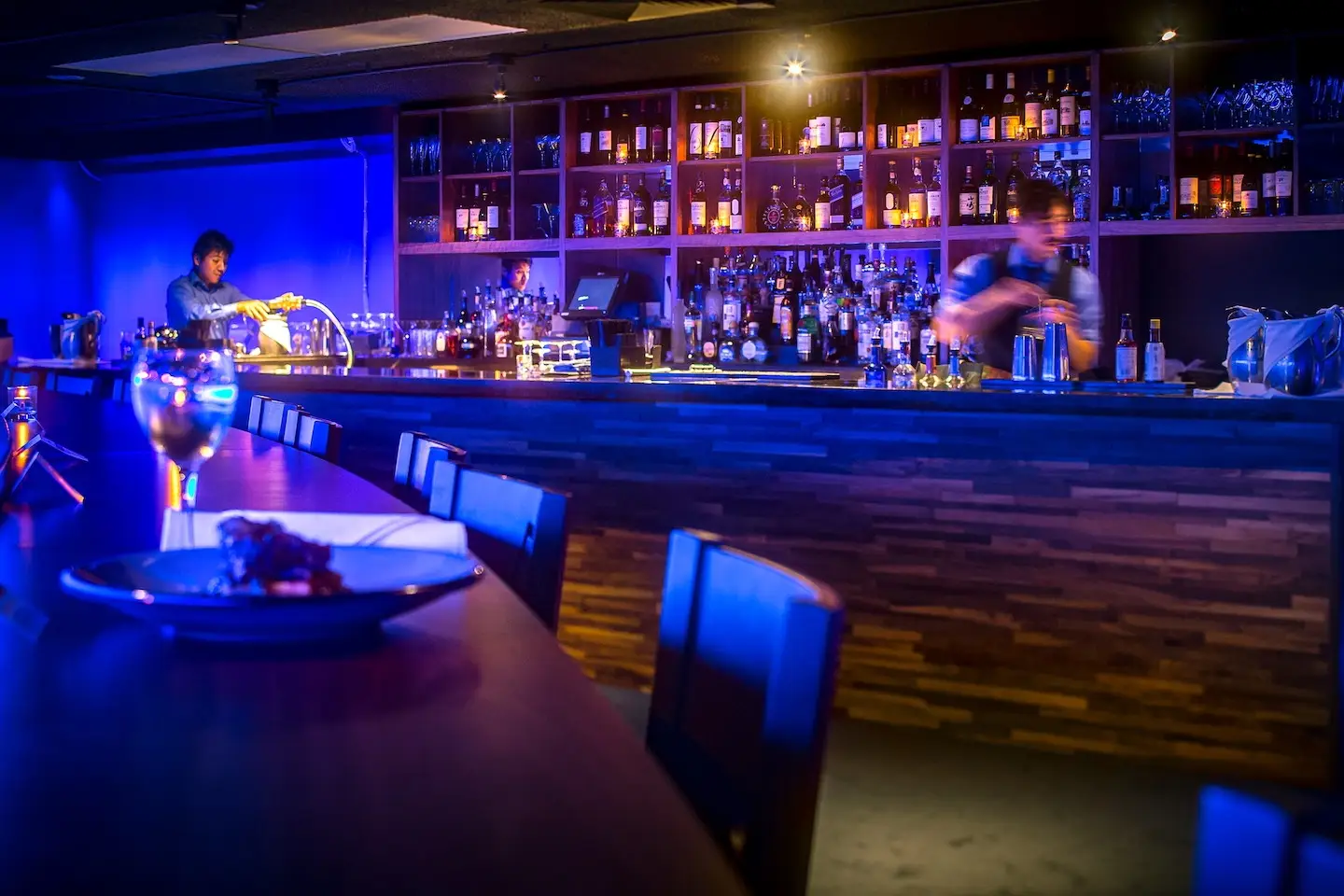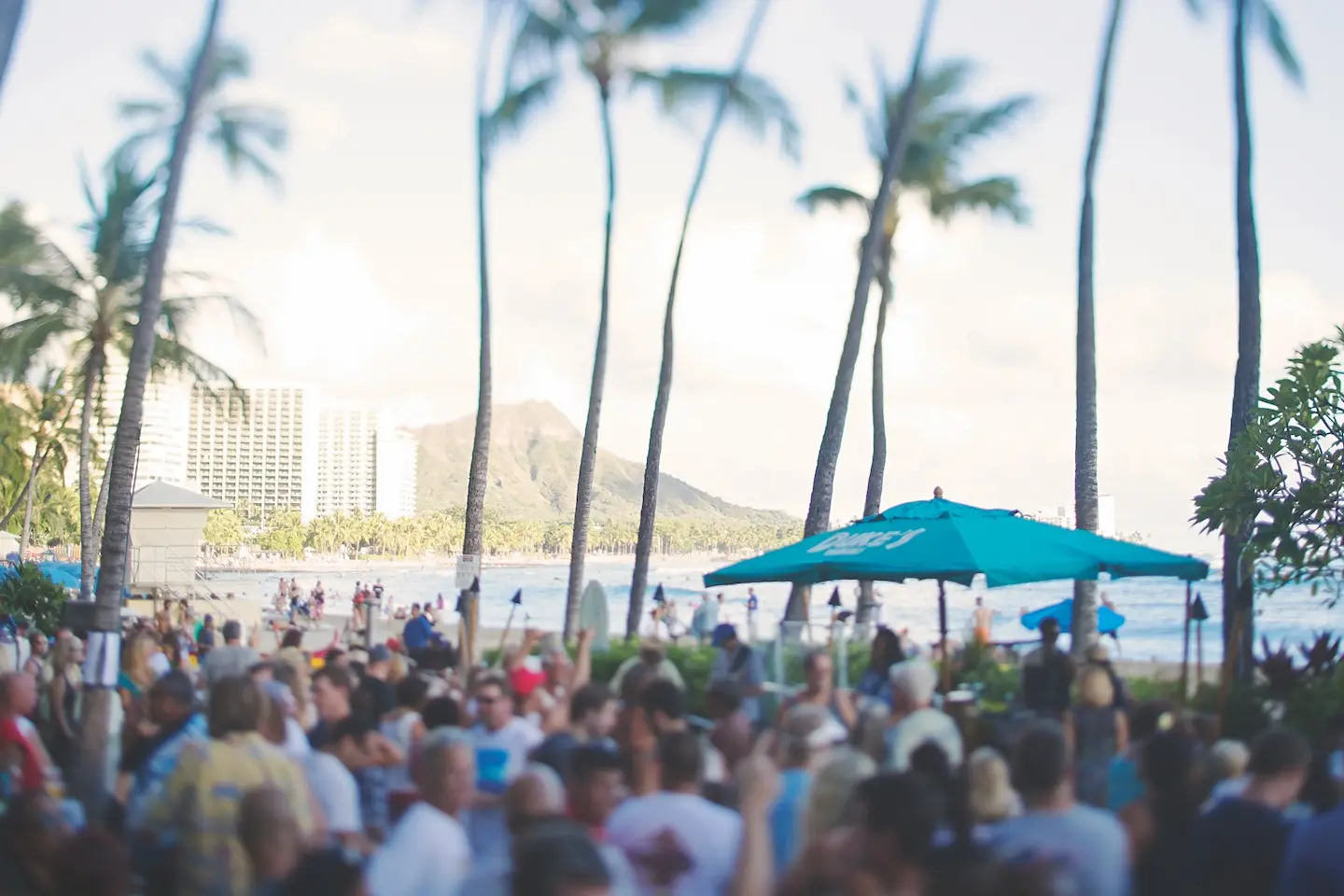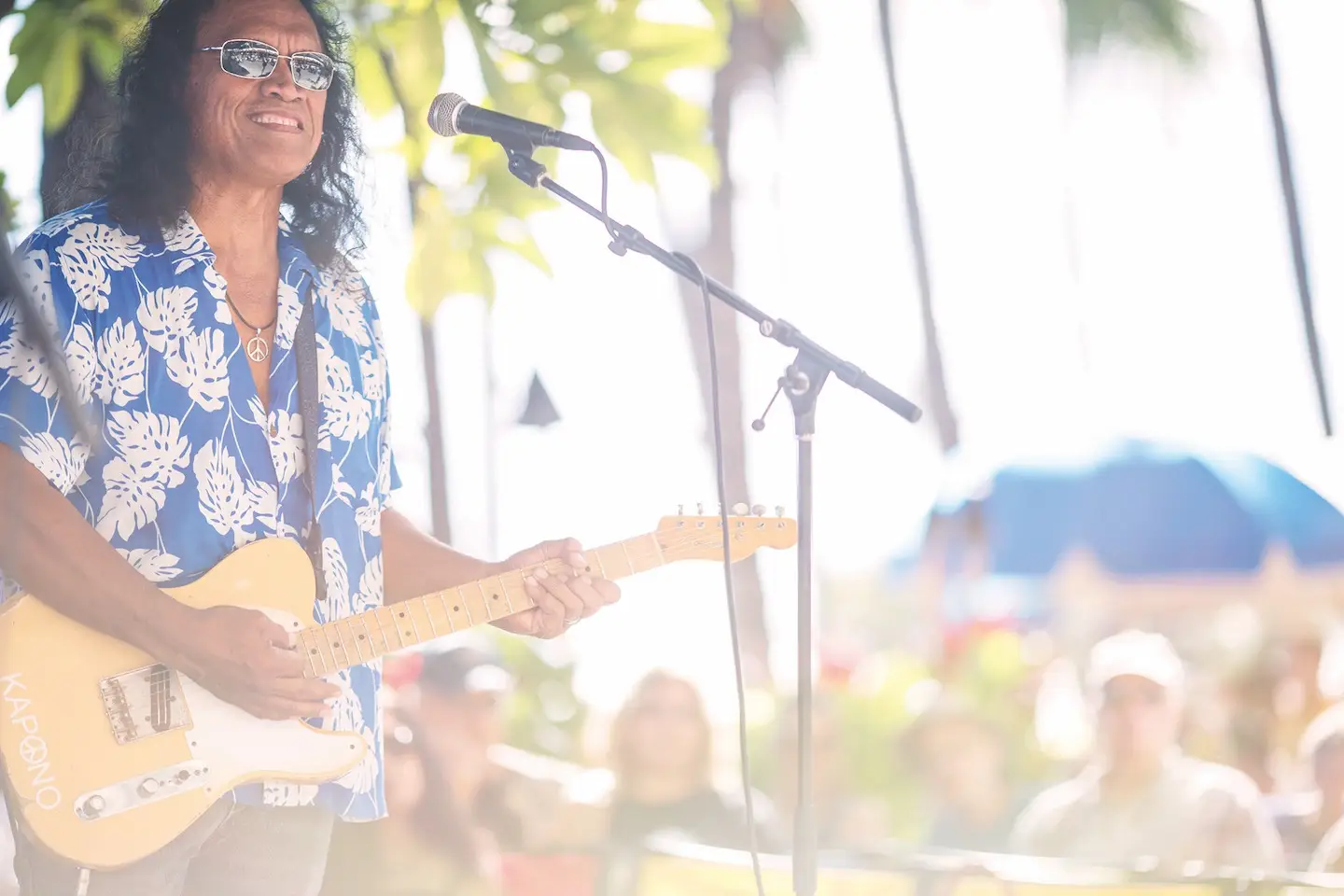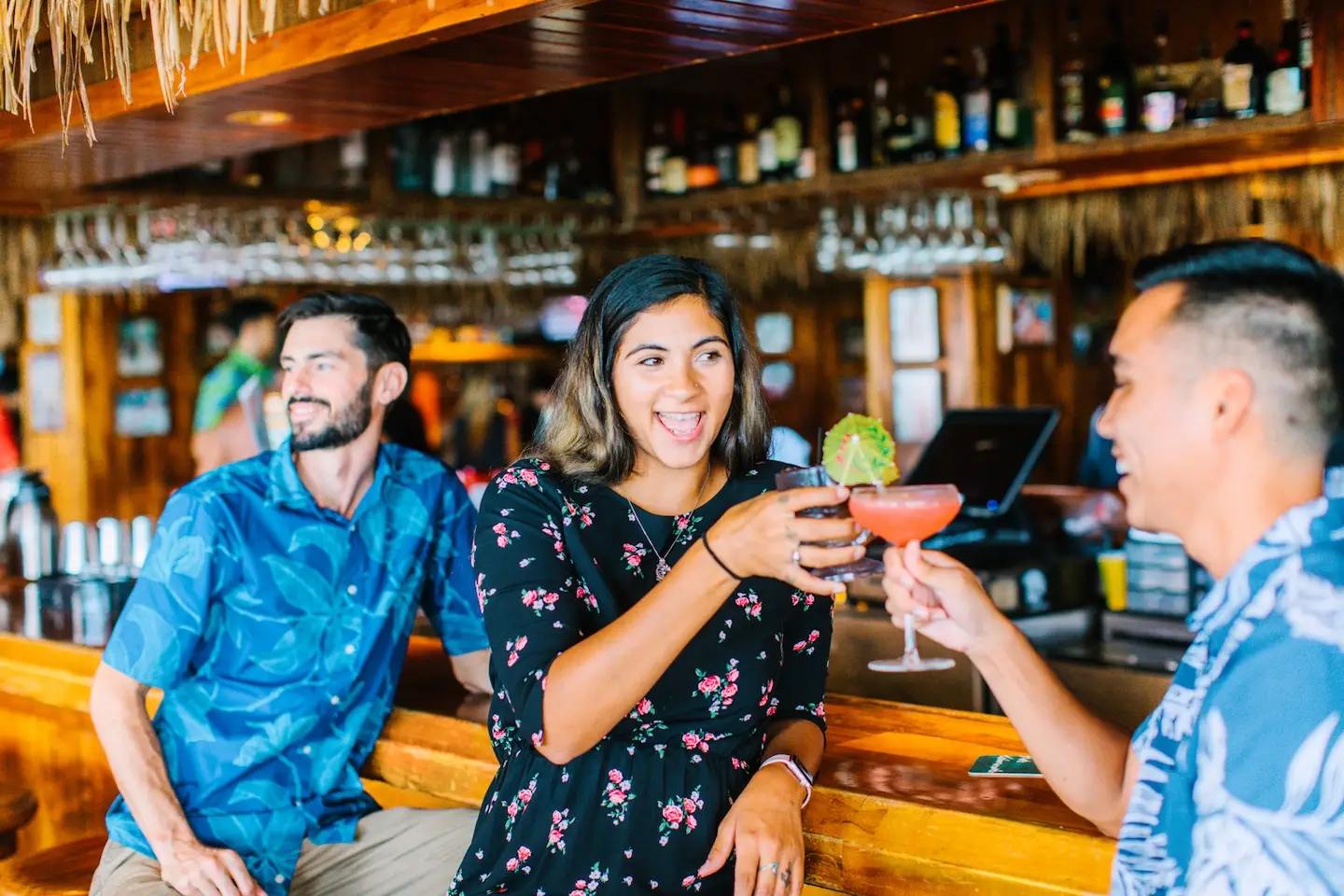Partner Content
In 1915, the Kailima Hawaiian Quintet entranced visitors to the Hawaiian Pavilion at the Pan-Pacific Exposition in San Francisco with songs like Henry Kailima’s “On the Beach at Waikiki.” Those performances helped spark a nationwide ukulele craze and the steamship era of travel to Hawaii.
More than a century later, visitors to Waikiki still find Hawaiian music creates the perfect soundtrack for their vacation. And some of their most memorable experiences come from enjoying live performances in three distinctive venues: Kani Ka Pila Grille at the Outrigger Reef Waikiki Beach Resort and, over at the Outrigger Waikiki Beach Resort, Blue Note Hawaii and Duke’s Waikiki.
Just as modern Hawaiian music can include a variety of genres—reggae, country, pop, folk, rock, rap and jazz among them—these three settings offer different kinds of showcases for musicians and different atmospheres for audiences. They also reflect different aspects of Waikiki, from a family-friendly gathering place with historic Hawaiian roots to a sophisticated, cosmopolitan destination and a vibrant beach town. After learning a little more about these unique venues, you may want to make reservations for all three.
Kani Ka Pila Grille
A mix of 50 percent locals and 50 percent visitors, the patrons at Outrigger Reef Waikiki Beach Resort’s poolside restaurant share a happy buzz of anticipation before the nightly performances of traditional and contemporary Hawaiian music by award-winning artists.
Since it opened in 2009, Kani Ka Pila Grille has lured locals to Waikiki “as a place to entertain their visitors, friends and families,” according to Luana Maitland, director of cultural programs at the two Outrigger hotels in Waikiki. “They know every day is going to be Hawaiian music, and that it’s going to be the best music.”
First-time visitors who walk up and see the lively, all-ages atmosphere—which includes hula dancers spontaneously joining the musicians onstage — often ask if there’s a private party going on, Maitland says. “I say, ‘No, these people are just here to hear the music here. Local people know Aunty is sitting in the corner over there, a family of four knows the other table of four,” she explains.
“Now we have visitors who make it a point to come,” she adds. “They call to see if Kani Ka Pila is still playing Hawaiian music. They remember the feeling they had when they first came and they have to enjoy it on their visit back. Some people even make their reservations to stay with us so they can be there every night.”
Of course, they don’t have to worry about what kind of music they’ll hear. Although each artist brings his own setlist and style, they’re all among the biggest names in Hawaiian music, with many Na Hoku Hanohano awards—the islands’ equivalent of the Grammys—among them (some also have mainland Grammys to their credit.) Among those who have played nearly every week since Kani Ka Pila opened are Sean Na‘auao, equally known for his “Jawaiian” (Hawaiian reggae) tunes and his interpretations of traditional mele (songs), and velvet-voiced, slack key guitarist Kawika Kahiapo, who learned to play at slack key legend Gabby Pahinui’s famous backyard jam sessions, or kanikapila, in Waimanalo. Other frequent performers have included Jawaiian music icon Brother Noland, multiple Na Hoku Hanohano-winner Weldon Kekauoha and the Kauai husband-and-wife duo known as Kupaoa, who got their start after winning one of Kani Ka Pila’s annual talent shows for local musicians.
Pahinui’s late son Cyril, another slack key virtuoso affectionately known as Uncle Cyril, also performed regularly at the restaurant from its opening until health issues forced his retirement in 2016. “He had played in Waikiki before, but he wasn’t certain that’s where he wanted his music played,” noted Maitland, who said she had asked for his blessing to name the restaurant after his family’s musical gatherings. After he approved the name and agreed to come play one night, Maitland then asked Uncle Cyril how felt about playing in Waikiki.
“He said it felt good, the place felt good, the name of the place felt good and he played every week, never missing a Wednesday until he fell sick a few years ago,” Maitland recalled. “He would let organizers know when he traveled that he would need to be back before Wednesday. He was committed to his music and his family name. That’s how we were able to keep the concept of true Hawaiian music, because he was one of the legends.”
Blue Note Hawaii
Photos: Blue Note Hawaii
While the nightly lineup of performers has “evolved quite a bit” since Blue Note Hawaii debuted in 2016 at the Outrigger Waikiki Beach Resort, one aspect hasn’t changed: This sophisticated showroom is the best in the islands to hear every note and nuance of the musicians onstage.
“It’s a true listening room and supper club, where people can come sit inches away from their favorite performer and take in a concert,” says Martha Seroogy, director of sales and marketing for Blue Note Hawaii. The owners of the original Blue Note in New York City put “millions of dollars” into state-of-the-art sound and lighting systems when they took over the former Society of Seven showroom, she explains.
“It really is world-class,” Seroogy adds. “It’s a great room, because there are clear sightlines throughout the venues, with no pillars to block your view and not a bad seat in the house. And at 350 seats, it’s still pretty small, and a very intimate experience.”
Renowned for hosting jazz musicians at their venues across the globe, Blue Note’s owners soon realized local audiences craved more variety — including the ability to hear some of the most revered Hawaiian music artists in a concert setting, Seroogy says. Visitors also wanted to hear more local music, too. “Since we started presenting more of it, it’s been a smart move,” she says.
Now appearing at Blue Note Hawaii three to four times a year, including popular Christmas shows, genre-crossing ukulele virtuoso Jake Shimabukuro became the club’s first local performer during its soft opening in 2016, Seroogy says. “He’s also become kind of an ambassador for Blue Note, mentioning it whenever he’s interviewed by different organizations,” she notes. “He’s become almost family.”
Among performers of more traditional Hawaiian music is singer-songwriter and slack key guitarist Kuana Torres Kahele, who plays monthly “and makes all his own haku leis,” Seroogy notes, referring to a braided style of lei. Other Hawaiian music regulars include Anuhea, a Maui-born singer-songwriter who draws inspiration from reggae, pop and R&B, and draws full houses for her Thanksgiving and Valentine’s Day shows; Paula Fuga, a roots-reggae, pop and folk artist from Oahu’s North Shore who first came to fame on “American Idol” and now records with Jack Johnson and Ben Harper; and Kimie Miner, who grew up on Hawaii Island and Oahu, and also creates contemporary pop/reggae-inflected music.
Blue Notes still welcomes international stars of jazz, R&B, pop and other genres, including artists like Air Supply, Kool & the Gang, and Sheila E. They typically take full advantage of the intimate setting to engage with fans, Seroogy says.
“A lot of performers who would typically play a much larger venue or arena put on a different kind of show when they play a club like ours — it’s more about storytelling and interacting with the audience, and it’s much more interesting,” she explains. “You can see Brian McKnight in Blaisdell Arena, and he can’t see anyone, and then he comes here and sees people in the front row and interacts with them.”
Although all the seats are good, and ticket holders are guaranteed a seat within their section, Seroogy notes, “we do recommend that guests arrive when doors open, or half an hour before doors open” to guarantee their preferred spot.
Another Blue Note bonus: gourmet food and expert drinks. “We have our own chef, our own kitchen, and everything is made in-house,” Seroogy says. “Guests have a server dedicated to their table, they can order dinner or pupus, and cocktails leading up to the show and throughout.”
Duke's Waikiki
Photos: Duke’s Waikiki
The beachfront setting at Outrigger Waikiki Beach Resort has long been part of the appeal at Duke’s Waikiki, the family-friendly restaurant named for surfing legend and “ambassador of aloha,” Duke Kahanamoku. That’s true for the musicians who play there as well as diners.
“I can see Diamond Head, catamarans, surfers—there’s nothing like it,” says Henry Kapono, who has performed Sunday afternoons at Duke’s for more than 25 years. Kapono’s high-energy weekly mix of rock, pop and contemporary Hawaiian music has become as iconic as the restaurant’s namesake.
“It has a cult following and some people plan their vacations around it,” notes Dylan Ching, vice president of operations for TS Restaurants, which operates Duke’s. Kapono’s music “is for everybody, everybody can get into it,” Ching adds. “You feel like you’re in Hawaii, but you also feel like you’re at your favorite concert—you know all the lyrics to the songs.”
Those who grew up in Hawaii have head start when it comes to singing along: Kapono came to fame in the mid-‘70s as part of the harmonizing soft-rock duo Cecilio & Kapono and has continued to make the airwaves as a solo artist since 1981. “My mom and my dad listen to his music, I listen to it, I see my kids getting into it,” says Ching.
Kapono’s first Hawaiian-language album, 2006’s hard-rocking “The Wild Hawaiian,” earned a Grammy nomination. Jimmy Buffett helped him gain even wider acclaim by recording the singer-songwriter’s composition “Duke’s on Sunday” for Buffett’s 2006 album “Take the Weather With You.” The lyrics capture the mood: “Music playing happy songs / Everybody’s getting along / Dancing in the sunshine / Sippin’ on that rosé wine / Good times will set you free /Oh this is the place to be.”
In 2017, the Grammy Museum in Los Angeles honored Kapono’s impact on Hawaii’s music scene with a 2017 exhibition named after one of his early hits with Cecilio & Kapono, “We Are Friends.” He’s also inspired a generation of younger contemporary artists, some of whom can be heard during the rest of the week on the patio at Duke’s.
Since reopening in summer 2020, Duke’s has offered up to three sets of music on weekdays and four on weekends, according to Ching. “It’s been amazing,” says Ching. “We’re very proud that we included musicians in our opening strategy, especially since I don’t think they were getting paid for quite some time during the pandemic. It also allowed us to reshuffle the deck and include people who were hungry to play at Duke’s that didn’t play there before.”
Most perform contemporary Hawaiian music, which Ching notes includes a mix of Hawaiian music, country, reggae and rock, and “some mix in more mainstream music that they put an island twist on, which everybody loves to keep that energy going.” Still, Ching says Duke’s asks artists to play Hawaiian music for at least half their set. “We are in Hawaii, this is our culture and our music, and we want to be sure to give audiences that,” he says.
“We try to have Friday be a bit more Aloha Friday, so that’s when Maunalua plays,” Ching notes. “Saturday and Sunday we bring the tempo up. We have the larger concert down on the patio with a larger three- to five-piece band like Kapena, with more of the beach vibes.”
And of course, that includes Kapono’s weekly shows. “I don’t see anybody able to replicate what Henry does,” Ching says. “He’s been doing it for so long, he knows what to do. It just works, it’s timeless. … We’re lucky to have him and have a great partnership.”
Note: Local rules currently allow these venues to operate at full capacity, but proof of vaccination or negative covid-19 tests for patrons 12 and older are required. Check www.oneoahu.org/safe-access-oahu for details and updates.

